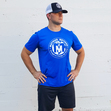How to Become a Fitness Instructor
In today’s health-conscious society, the role of a fitness instructor has never been more vital. Whether you’re motivated by a personal passion for fitness or inspired to help others achieve their health goals, becoming a fitness instructor is a rewarding and dynamic career choice. This article will guide you through the steps to becoming a fitness instructor, from acquiring the necessary qualifications to finding Jobs in Fitness Instructing.
Understanding the RoleA fitness instructor’s primary responsibility is to design and implement exercise programs that help clients achieve their fitness goals. This role can vary significantly depending on the setting—whether it be a gym, fitness center, private practice, or corporate environment. Key responsibilities often include:
Assessing clients’ fitness levels and health conditions.Creating personalized fitness plans.Demonstrating and teaching proper exercise technique.Motivating and supporting clients to maintain their fitness regimes.Monitoring clients’ progress and adjusting programs as needed.Educational RequirementsWhile passion and personal fitness can take you far, formal education and certification are crucial for a successful career in fitness instructing. Here’s what you need to know about the educational requirements:
High School Diploma or EquivalentThe journey typically starts with a high school diploma or equivalent. Basic knowledge of biology, physical education, and health can be beneficial.
Postsecondary EducationAlthough not always required, pursuing a degree in exercise science, kinesiology, physical education, or a related field can provide a solid foundation and make you more competitive in the job market. These programs cover essential topics like anatomy, physiology, nutrition, and biomechanics.
CertificationCertification is a must-have for fitness instructors. It validates your expertise and assures clients of your professionalism and commitment. Several organizations offer certification programs, and the choice may depend on your specific interests and career goals.
Popular Certification BodiesAmerican Council on Exercise (ACE)National Academy of Sports Medicine (NASM)American College of Sports Medicine (ACSM)National Strength and Conditioning Association (NSCA)Each organization has its own requirements, including exams and continuing education.
SpecializationsTo stand out in the competitive fitness industry, consider specializing in a particular area. Specializations can include:
Personal Training: One-on-one training tailored to individual clients.Group Fitness: Leading exercise classes for groups, such as aerobics, spinning, or Zumba.Strength and Conditioning: Focused on improving athletic performance.Yoga or Pilates: Teaching these specific disciplines.Special Populations: Working with seniors, children, or clients with specific health conditions.Practical ExperienceHands-on experience is invaluable in the fitness industry. Many certification programs require a certain number of practical hours. You can gain this experience through:
Internships: Often part of degree programs, internships provide real-world experience.Entry-Level Jobs: Positions like gym assistant or fitness class assistant can offer a foot in the door.Volunteering: Volunteering at community centers or local gyms can also build experience and networks.Skills and AttributesSuccessful fitness instructors possess a mix of technical knowledge and personal attributes. Key skills and qualities include:
Communication Skills: The ability to convey instructions clearly and motivate clients.Interpersonal Skills: Building rapport with clients is crucial.Analytical Skills: Assessing clients’ needs and progress to adjust programs.Physical Fitness: Maintaining your own fitness to demonstrate exercises effectively.Patience and Empathy: Understanding and supporting clients through their fitness journey.Finding Jobs in Fitness InstructingOnce you’re certified and experienced, the next step is to find the right job. There are various avenues to explore when searching for Jobs in Fitness Instructing.
Online Job PortalsWebsites like Active Careers list numerous fitness instructor positions. These platforms allow you to filter jobs based on location, specialization, and other preferences.
NetworkingNetworking is powerful in the fitness industry. Attend industry events, join professional organizations, and connect with fellow instructors and fitness professionals.
Local Gyms and Fitness CentersDirectly approaching local gyms and fitness centers can be effective. Many establishments prefer hiring instructors who show initiative and have a personal interest in their facilities.
Social MediaLeverage social media platforms to showcase your expertise. Platforms like LinkedIn, Instagram, and Facebook can help you connect with potential employers and clients.
Building Your BrandIn the digital age, personal branding is essential for fitness instructors. Creating an online presence can attract clients and employers alike.
Social Media PresenceShare fitness tips, workout videos, and client success stories on social media. This not only demonstrates your expertise but also engages potential clients.
Website and BlogA professional website with a blog can showcase your knowledge and services. Regularly updating your blog with fitness-related content can boost your online visibility.
Testimonials and ReviewsEncourage satisfied clients to leave testimonials and reviews. Positive feedback can significantly enhance your credibility and attract new clients.
Continuing EducationThe fitness industry continually evolves, with new research and trends regularly emerging. Staying updated through continuing education is crucial.
Advanced CertificationsPursue advanced certifications to deepen your expertise and open up new career opportunities.
Workshops and SeminarsAttend workshops, seminars, and conferences to learn about the latest trends and techniques in fitness training.
Online CoursesMany institutions offer online courses in various fitness-related topics. These can be a convenient way to continue learning without disrupting your work schedule.
ConclusionBecoming a fitness instructor requires dedication, education, and a passion for helping others achieve their fitness goals. By following the steps outlined in this article—understanding the role, obtaining the necessary education and certification, gaining practical experience, and continually updating your knowledge—you can build a successful career in fitness instructing. As you embark on this journey, remember to leverage resources like Jobs in Fitness Instructing to find opportunities that align with your career aspirations. Whether you’re just starting or looking to advance your career, the fitness industry offers a dynamic and rewarding path for those committed to promoting health and wellness.



